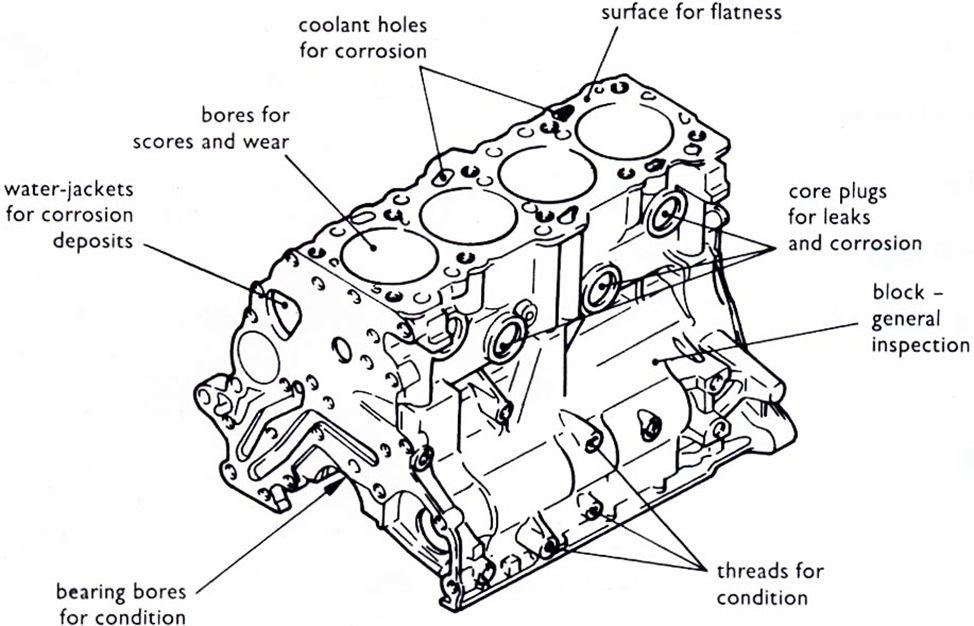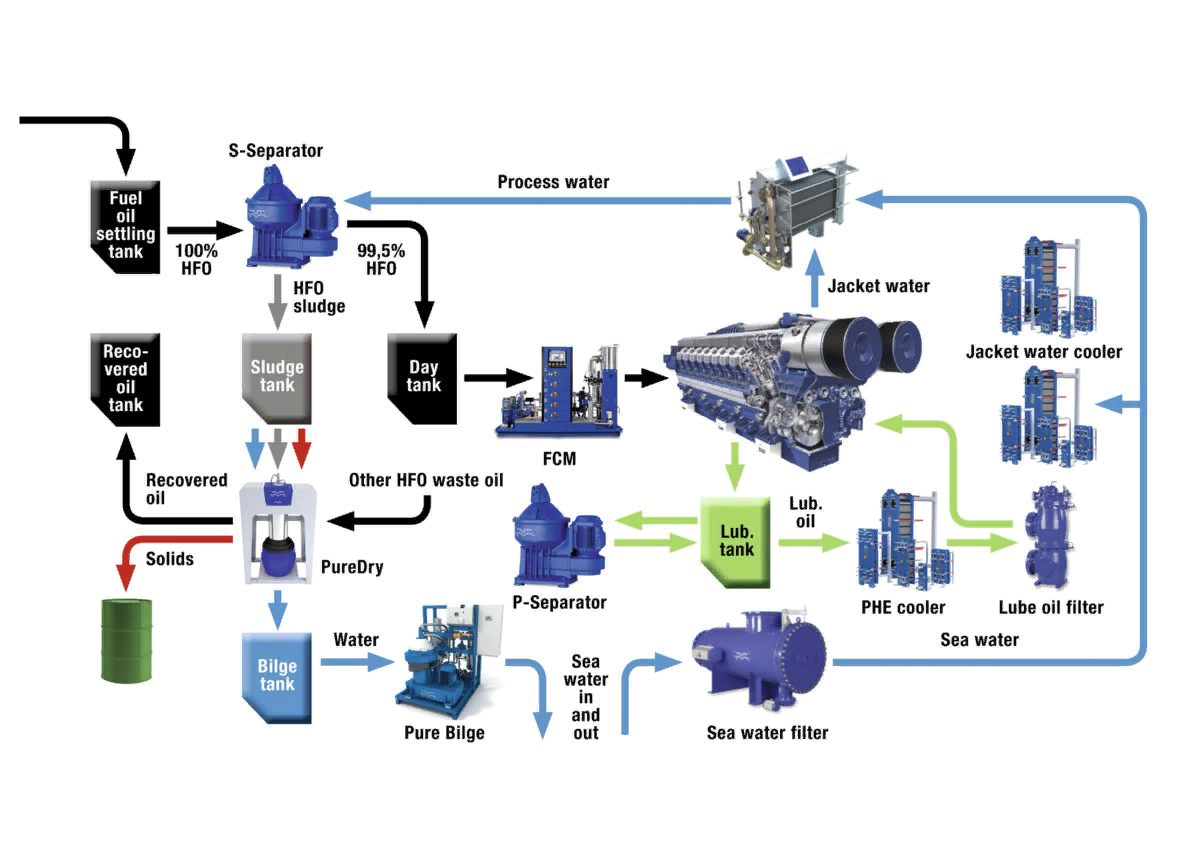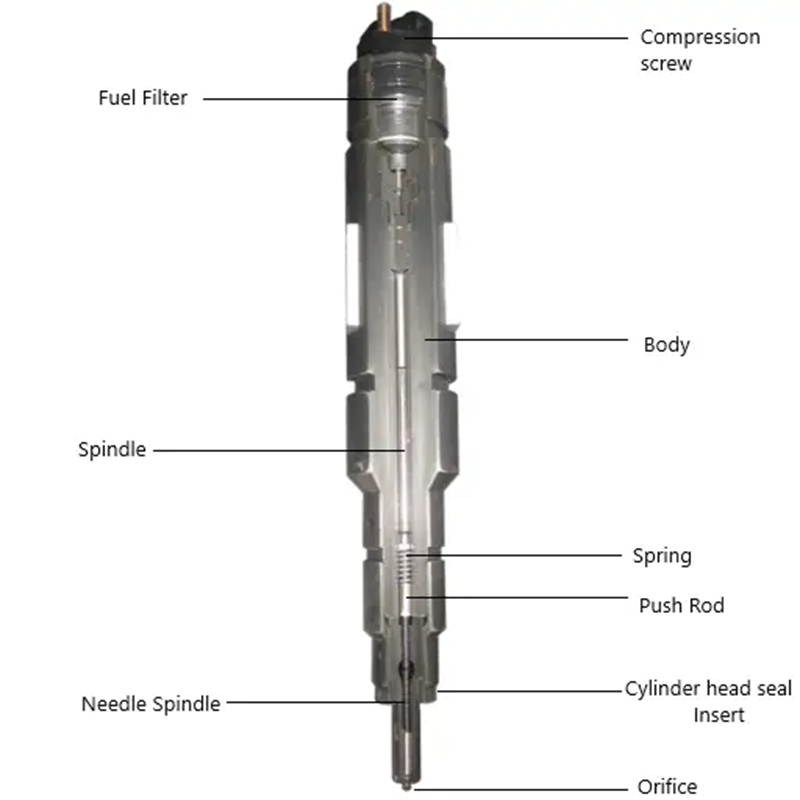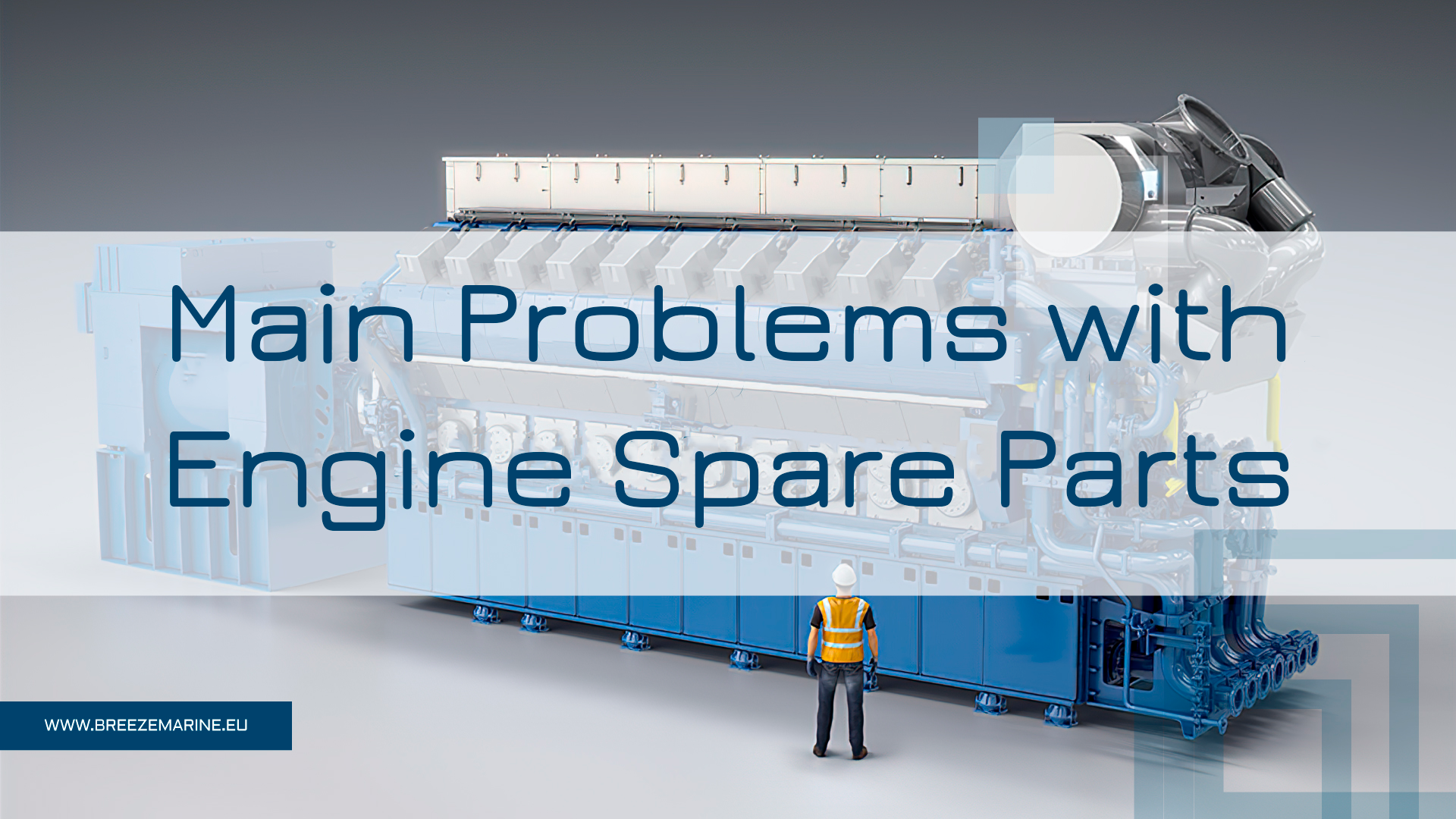The efficient operation of the main engine on a ship is key to the successful completion of its voyage. Engine failures can result in serious costs and loss of time. Therefore, it is important to constantly maintain the engine and repair or replace spare parts or engine components if necessary to prevent the entire engine from being replaced. In this article, we will analyze the most common problems faced by the critical parts of marine engines.
Cylinder block.
Under the action of forces from pistons and the crank mechanism, high mechanical stresses are created in the power elements of the block. Violation of the welding modes of the block elements and their heat treatment during manufacture lead to the occurrence of internal (residual) stresses. These stresses cause the deformation of the block elements and the formation of cracks in the welds.
The mutual movements of the parts associated with the block (crankshaft bearings, fuel pump shafts, camshafts, and cylinder bushings) lead to the wear and tear of the supporting surfaces of the block. Vibrations of the block walls and cylinder bushings can lead to cavitation damage to the walls of diesel engine blocks.
During current repairs, check the fastening of bolts and the absence of cracks in the elements of the block. Cracks should be welded using a special technology.

Fuel System.
When starting, the crankshaft rotates at a frequency sufficient for starting, but there are no fuel flashes in the cylinders or they occur intermittently and the diesel stops. The diesel engine runs at a reduced speed or stops altogether. The malfunction is due to the fact that fuel is not supplied to the fuel pumps or it is supplied in insufficient quantity or inadequate quality. The cause of the malfunction may be:
• A malfunction in the fuel pump. To fix this problem, it is necessary to disassemble and inspect the pump and its drive, adjust the gaps and the operation of the valves, and replace faulty parts.
• A malfunction in the float fuel receiver. To fix the problem, you need to inspect the receiver and fix the malfunctions.
Clogging of the intake grids in fuel tanks, fuel filters, or fuel lines. To fix the issue, it is necessary to clean and rinse the grids and filters, and to blow the fuel lines.

Fuel line
https://gcaptain.com
Turbo Generator.
During cold scrolling, abnormal noise or knocks are heard in the compressor or turbine.
The reason may be:
• A jamming in the flow part or seals. It is necessary to find out the cause and eliminate the malfunction by flushing the flow part or applying another accessible solution.
• If some bearings are damaged, it is necessary to open the bearing, fix the malfunction, or replace the bearing.
Increased Fuel Pressure in Front of the Fuel Injectors:
• The fuel filters of the injectors are dirty. The filters must be cleaned.
• The fuel injectors are dirty. It is worth replacing the fuel injectors with a spare kit.
There is No or Little Fuel Pressure in Front of the Fuel Injectors:
• The stopcock has not opened. Check the power supply and control circuits of the stopcock. If the circuits are in good condition and receive power, and the stopcock does not open, it is necessary to replace it.
• The regulator pump does not create pressure. Check the fuel supply to the pump and the serviceability of the pump drive. In case of the malfunction of the regulator pump, replace the pump.
• The emergency fuel drain valve or drain valve is leaky. Check for fuel leakage through the drain. If there is a large leak, identify the defective valve and replace it if necessary. If the defect is not eliminated, replace the valve.

Ask for help in time!
Breezemarine offers the best marine spare parts, providing engines and their parts at the highest level. We guarantee the best quality and full support from the moment of application to the complete completion of the work! Contact us to learn more.
